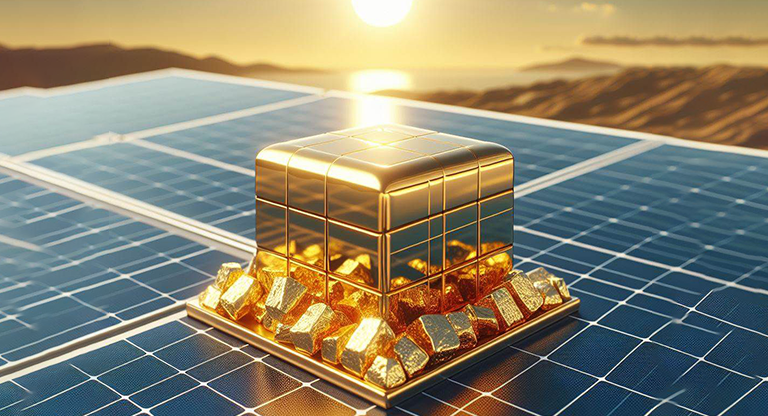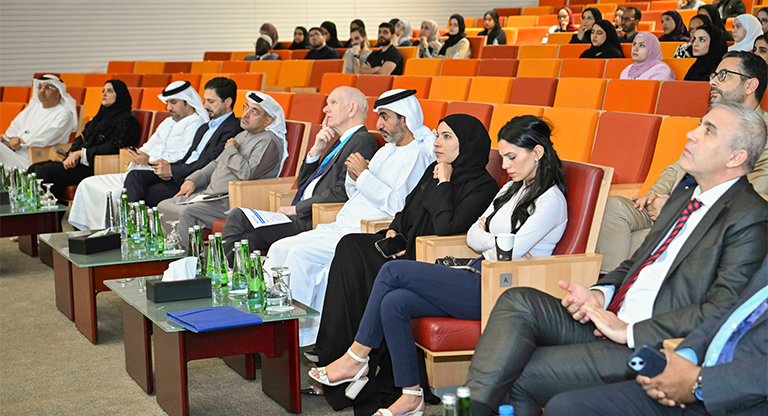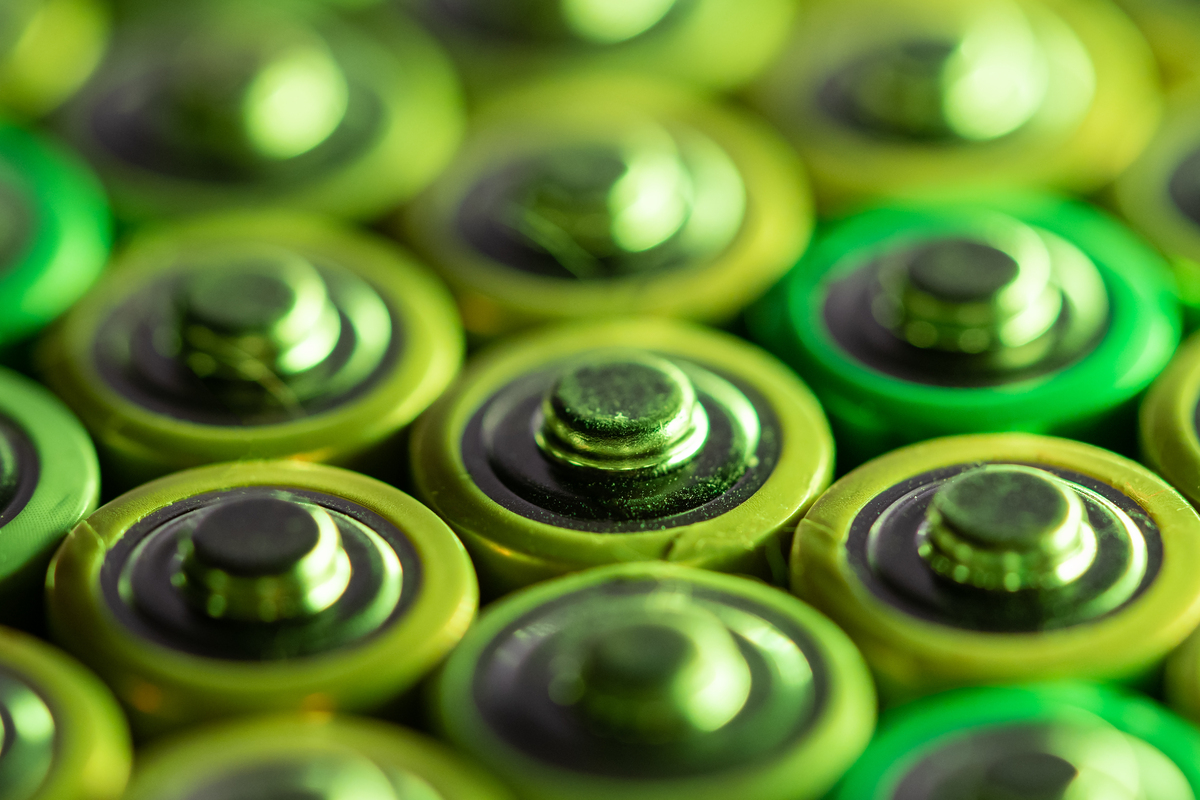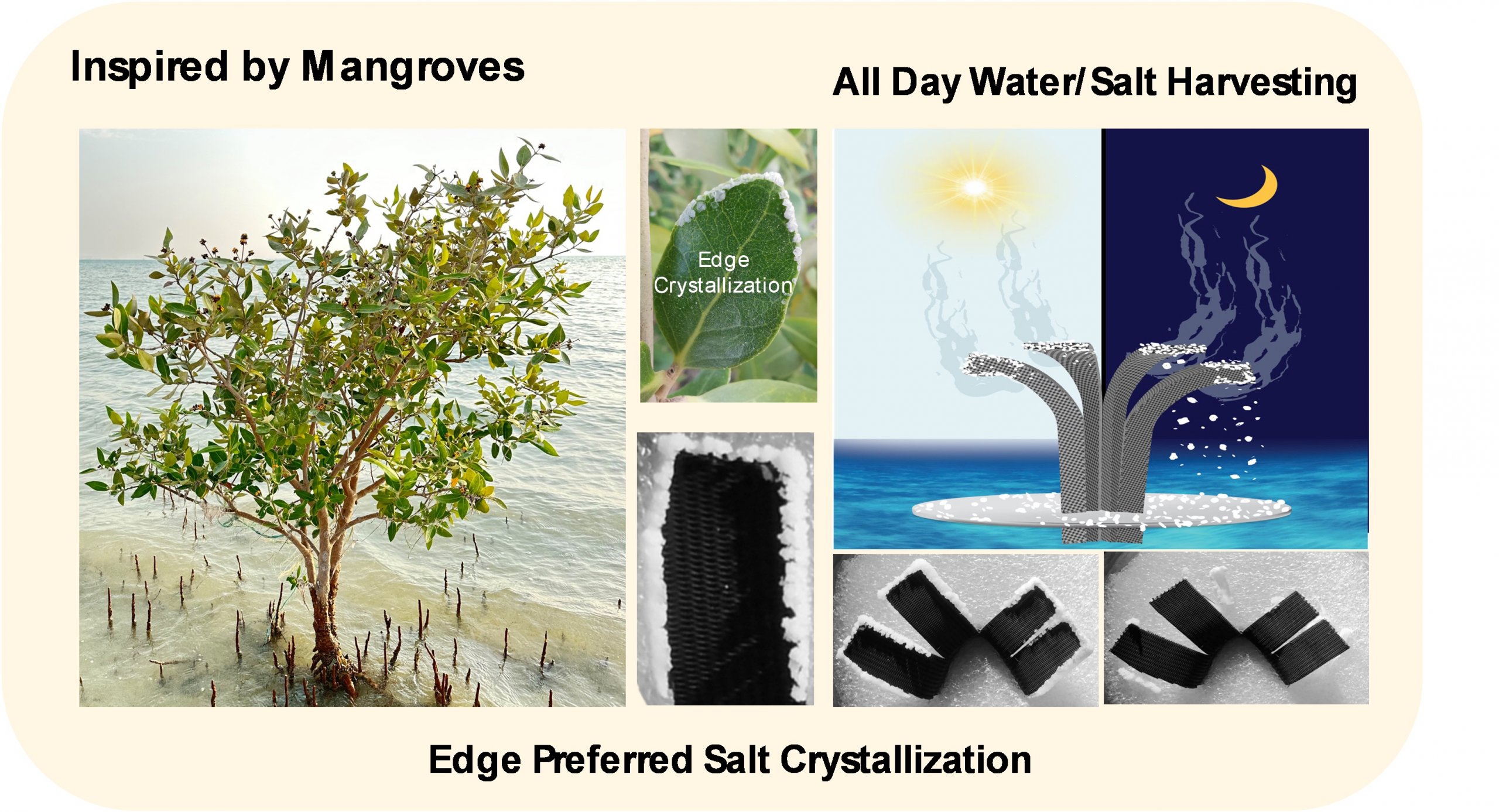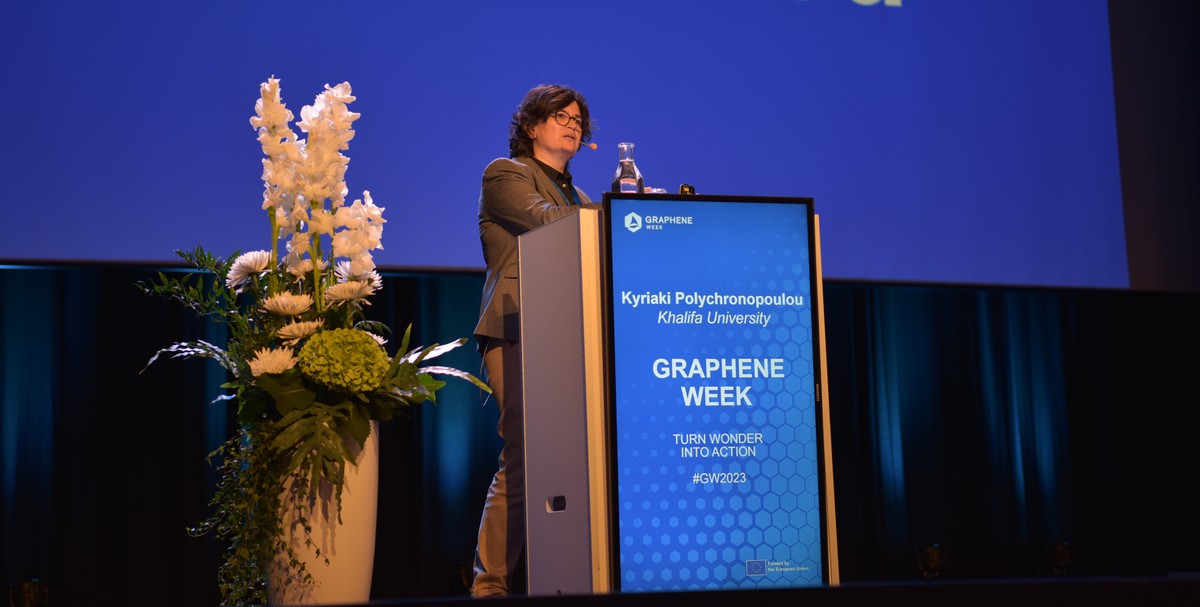
From CO2 to clean fuels, Dr. Kyriaki Polychronopoulou’s research on graphene-based catalysts could unveil a greener future.
The potential of graphene-based catalysts in fuel-related technologies paving the way for sustainable energy production was highlighted by Dr. Kyriaki Polychronopoulou, Professor, and Director, Center for Catalysis and Separation (CeCaS), Khalifa University of Science and Technology, at Graphene Week 2023.
The 18th edition of Europe’s leading conference in Graphene and 2D Materials, recently held in Gothenburg, Sweden, is an annual conference that brings together researchers, professionals and enthusiasts to exchange knowledge in the field of graphene. One of the highlights of the conference was Dr. Polychronopoulou’s presentation, titled, “Designing Multifunctional Catalysts for Added-Value Products” that focused on the research conducted at Khalifa University to develop high performance catalysts for Energy/Fuel and decarbonization applications using graphene and ‘MXenes’, another category of materials. The research team specifically examined catalysts based on graphene for reducing carbon emissions and producing aviation fuels, as well as MXenes for generating hydrogen, which is considered a clean alternative to fossil fuels.
Dr. Polychronopoulou and her colleagues, Dr. Yarjan Abdul Samad, Assistant Professor, Aerospace Engineering, Dr. Nirpendra Singh, Assistant Professor, Physics, and Dr. Aseel Hussien, postdoctoral researcher, Mechanical Engineering, conducted a multifaceted study to address a sustainability challenge: CO2 utilization and H2 production. Two Mechanical Engineering MSc students are also involved in different aspects of this project; Mira Omar Mohamed and Louai Maghrabi.
The research team led by Dr. Polychronopoulou created graphene-based catalysts that efficiently converted CO2 into natural gas and biofuels, and discovered that graphene-based catalysts performed exceptionally well, demonstrating stability and selectivity. In their investigation, they compared catalysts with different qualities of graphene to understand their properties and performance. In the case of MXenes, they found that the structure and termination of MXenes influenced hydrogen production significantly.
During the presentation, Dr. Polychronopoulou showcased the fabrication, testing, and the analysis of the catalysts for specific reactions, highlighting how the methods, properties of the catalysts, and their performance are all interconnected. The presentation also emphasized the application of these catalysts in energy production and storage, particularly by enhancing geometric and electronic interactions of graphene and the creation of active catalytical sites.
This makes the new research all the more relevant as the utilization of CO2 through graphene-based catalysts has the potential to address the critical need for sustainable and renewable energy sources, aligning with UAE Energy Vision 2050, and offering a solution to a global problem.
Dr. Polychronopoulou said: “Energy or fuels is one of the strategic areas of the UAE. The energy diversification – energy mix – is a key component in the UAE Energy Strategy 2050. So, deployment of technologies that can produce fuels or upgrade the value of fuels is at the heart of the energy transition. Catalysis is the field mastering all these tools for the transition materialization from the atomic level to the technology deployment. At the same time, the Presidential Court endowment for graphene and 2D materials research is the most obvious demonstration of the high hopes and expectations put on these types of materials for advanced technologies in different sectors. So, the vital question to the UAE scientific community is how we can explore new research avenues and expand the possible applications for such materials?”
Dr. Polychronopoulou added: “Graphene Week was a great venue with a plurality of topics on graphene and other 2D materials, for example, MXenes, from fundamental to applied research and all the way to prototypes. I had the chance to witness many examples of research translation mostly on graphene. Furthermore, Graphene Week is a venue where people from academia, industry and startups can meet up and initiate fruitful synergies.”
Alisha Roy
Science Writer
10 October 2023


